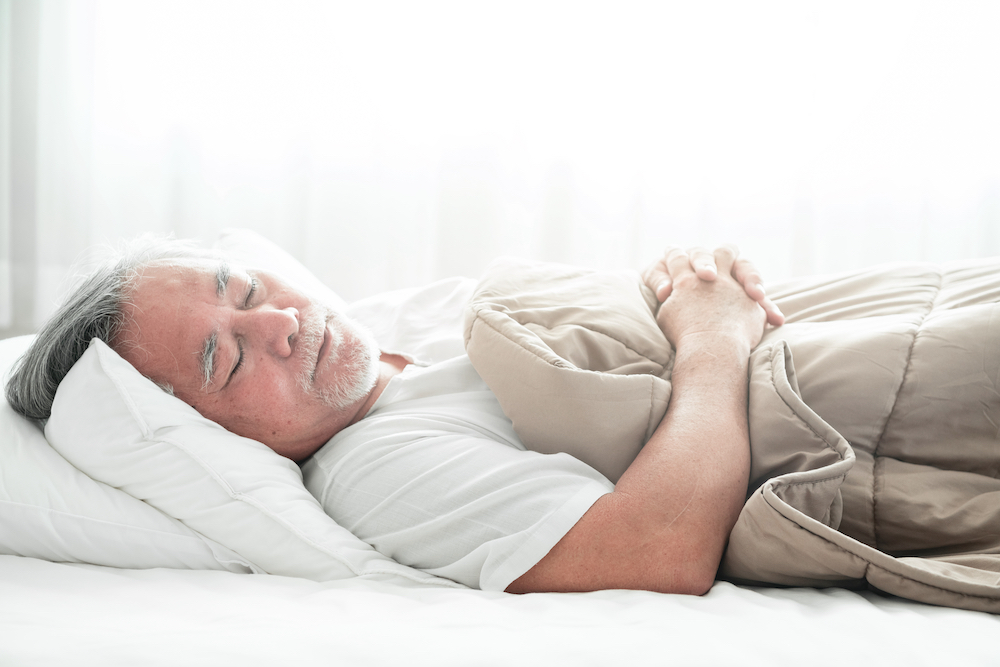No matter what age you are, sleep is very important for helping you to maintain your overall health and well being. However, for older adults, especially those with dementia or Alzheimer’s disease, getting adequate rest at night can be a real struggle. If it becomes a chronic issue, it can even cause some dementia behaviors to worsen. That is why here at Heritage Hills, our dementia memory care in Oceanside has some helpful sleep tips you won’t want to miss.
#1: Keep a Consistent Schedule
Right off the bat, one of the best sleep tips is to make sure that you are keeping a consistent schedule. This means going to bed and waking up around the same time each and every day, including on weekends and holidays. For older adults with dementia, however, this can be a pretty big ask. One of the most common dementia symptoms include forgetfulness and the inability to properly keep track of time. If you are a resident of our dementia memory care in Oceanside, our helpful caregivers would be more than happy to assist you with keeping a schedule so that you can get the best night’s sleep possible.
#2: Skip the Afternoon Caffeine
It is no secret that caffeine can be an excellent way to jumpstart your mornings. Though if you are having difficulties with getting to sleep at night, it might be best to watch your caffeine intake, especially after lunch. This includes various caffeinated beverages such as coffee, sodas, and even tea. Chamomile tea, however, can be a great all-natural, herbal remedy for helping you to fall asleep.
#3: Incorporate Timed Cat Naps
Perhaps one of the most anticipated aspects of retiring is the ability to take a nap whenever you want. While this is true, it’s important to remain mindful of when and how long that you do take a nap. It’s actually recommended seniors, especially those with dementia, work naps into the daily routine. That being said, the trick is to ensure that you’re not napping too long or napping too late in the day. Work with your caregiver on coming up with a way to include naps into your routine in a way that doesn’t compromise your sleep at night.
#4: Stay Active During the Day
After moving to a memory care community, something that you can really look forward to is the opportunity to stay active and engaged. Being active has many great benefits, including improving your heart health, bolstering your mood, and even having a positive influence on how well you sleep at night. Getting out and about, especially exposing yourself to natural sunlight, can do wonders for regulating your circadian rhythm. Even if you have limited mobility, ask your caregiver or one of our caring staff members to assist you on a walk or to sit with you outside and chat. For rainy days or the times it might be hard to get outside, even spending time in a comforting space with the curtains open is great for your health.
Here at Heritage Hills, our dementia memory care in Oceanside offers our residents a diverse monthly activities calendar. Our seniors can participate in a variety of activities, such as balloon volleyball, chair yoga, trivia games, bingo, karaoke, and so much more! There is always something fun to do and a way to connect with other residents.
#5: Try Aromatherapy
Have you ever heard of aromatherapy? It is about using aromatic plant extracts for its natural benefits. There are many different essential oils available on the market and each oil is known to help in a different area. For example, if you are having trouble with insomnia, lavender has all natural properties that can help promote sleep. Try using it in an essential oil diffuser or switching to a lavender infused lotion or bath products to see if it has a positive effect on your sleep.

#6: Use Ambient Lighting
As mentioned above, light can have an influence on one’s circadian rhythm. If you are using devices that emit blue light too close to bedtime, such as phones, tablets, and TVs, this could be impairing your sleep as well. If you can, try to limit using these types of electronics at least an hour or so before heading to sleep. Instead, opt to read a book or listen to quiet, relaxing music to help prepare your body for rest. Also, ensuring that your room has ambient lighting, such as the soft lightning from lamps or nightlights, can help as well.
#7: Do a Medication Review
This last suggestion is one that is very important but should be handled with the help of your primary care physician, and that’s doing a medication review. Whether you take one medication or several, if you are struggling with sleep, these could be the culprit. Take the time to schedule an appointment with your doctor and make sure that a trusted family member or your caregiver can go with you. There, your physician will review your list of medications and see if any might be disrupting your sleep. Also, they might be able to prescribe a sleep aid as well.
As an important note, remember: do not try any new medications, including over the counter sleep aids, without consulting with your physician first. This could lead to worsened symptoms or other negative side effects.
Become a Heritage Hills Resident Today
If you or your senior loved one has recently been diagnosed with dementia or Alzheimer’s disease, it can be difficult to know what your next step is. Unfortunately, cognitive decline can come with a host of various symptoms and behaviors, including impacting sleep habits.
At Heritage Hills, our dementia memory care in Oceanside isn’t just your run of the mill retirement community. In fact, memory care is all that we do! This means that we understand dementia and everything that comes along with it. Our highly trained and caring staff members are there to assist our residents each and every day to live their highest quality of life and be their healthiest selves.
To learn more about becoming a resident or to schedule a time to tour our community, be sure to contact us today!





